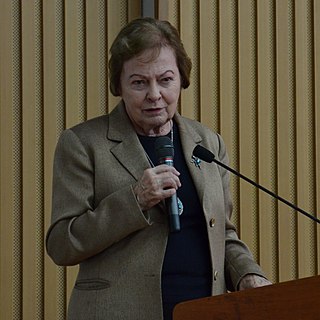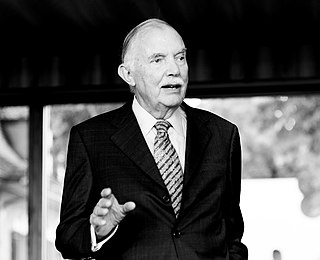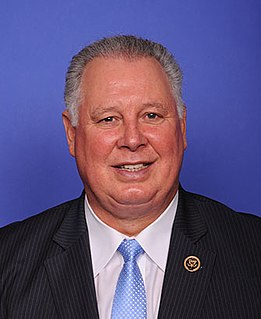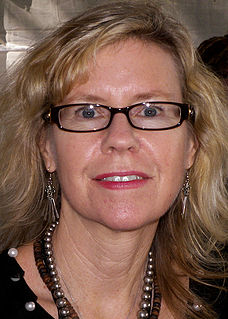Цитата Нела Ноддингса
Мы не найдем решения проблем насилия, отчуждения, невежества и несчастья, повышая нашу безопасность, вводя больше тестов, наказывая школы за их неспособность обеспечить 100-процентную успеваемость или требуя, чтобы учителя были хорошо осведомлены по предметам, которые они преподают. Вместо этого мы должны позволить учителям и ученикам взаимодействовать как единым личностям, и мы должны разработать политику, которая рассматривает школу как целое сообщество.
Темы цитат
Отчуждение
Разрешить
Сообщество
Требовать
Развиваться
Неудачи
Найти
невежество
Навязывать
Увеличивать
Вместо
взаимодействия
Больше
Должен
Наши
Проценты
Лица
Политики
Проблемы
Производить
профессиональные навыки
Наказание
Школа
Школы
Решение
по безопасности Учащиеся
Предметы
Учат
Учителя
Тесты
Лечить
несчастье
Насилие
Весь
Весь человек
Будет
Связанные цитаты
Когда школы действительно станут центрами сообщества, где у вас будут выдающиеся учителя, лучшие учителя, лучшие директора, замечательные партнеры из некоммерческих организаций, которые придут в нерабочее время, чтобы поддержать и провести развивающие мероприятия, социальные службы, тогда эти ученики превзойдут всех. шансов, победит бедность, победит насилие в сообществе, победит иногда неблагополучные семьи и будет продуктивным гражданином в долгосрочной перспективе. Они пойдут в колледж.
Многие чартерные школы не являются профсоюзными школами, в которые берут учителей с альтернативных направлений, таких как Teach For America. Они делают это отчасти потому, что многие чартерные школы придерживаются очень сильной идеологии в отношении того, как они хотят, чтобы учителя преподавали. И они обнаруживают, что, начав с более молодого или неопытного учителя, они могут более эффективно внедрить эти идеи.
Я не видел, чтобы стандартизированные тесты делали профессию менее привлекательной, хотя некоторые директора реагируют на них таким образом, что лучшие учителя уходят из своих школ (например, делая слишком большой упор на подготовку к экзаменам в школьной программе). С другой стороны, хорошие учителя хотят, чтобы показатели измеряли прогресс, и тесты могут помочь в этом.
По всей стране существует небольшое движение школ под руководством учителей. Это школы, в которых нет традиционного директора, учителя собираются вместе и сами управляют школой. Это самый радикальный способ, но я думаю, что более осуществимым для всех является просто создание карьерных лестниц для учителей, которые позволяют определенным учителям через определенное количество лет занимать новые роли. Роли наставничества своих сверстников, помощи в обучении начинающих учителей, чтобы они лучше справлялись со своей работой, роли в написании учебной программы, ведении планирования уроков.
Я думаю, что [тестирование] оказало глубоко проблематичное влияние на обучение учащихся. Учащимся должно казаться, что их ценность как личности эквивалентна их результатам тестов. Стресс, который культура высоких ставок оказывает на учителей, также крайне негативен и, безусловно, должен отрицательно сказываться на учениках. Это также депрофессионализирует учителей, потому что побуждает их читать сценарии, следовать жесткому расписанию и игнорировать потребности людей, которых они обучают, в пользу сценариев и расписаний.
Отличные учителя и школы ожидают и поощряют качественную работу и качественную работу. Великие учителя вдохновляют и требуют качества, всегда побуждая своих учеников к более высокому уровню мастерства. Они избегают простого подчинения и ожидают, что их ученики будут думать и действовать в соответствии с их постоянно растущим потенциалом.
Больше половины моих бывших учеников преподают в начальной и средней школе, колледже и университете. Я научил их быть увлеченными литературой и писательством и пытаться передать эту страсть своим ученикам. Это учителя-новички, которых, скорее всего, уволят, а не возьмут на работу повторно, хотя они увлечены своим делом.
Когда я был в Ухане, я ходил в художественную школу, которая была одной из самых важных художественных школ в Китае, огромной художественной школой. Одна из вещей, которые я увидел, это то, что школы очень большие и в них так много учеников. Мне очень трудно обучать творческой деятельности большое количество людей, потому что я считаю, что нужен личный контакт с учениками, нужно говорить индивидуально, нужен индивидуальный контакт между учителями и учениками, нужна преемственность. Для меня это проблема массового образования в каждом обществе сейчас.
Когда мы уважаем наших кровных предков и наших духовных предков, мы чувствуем себя укорененными. Если мы найдем способы лелеять и развивать наше духовное наследие, мы избежим того отчуждения, которое разрушает общество, и снова станем цельными. ... Научившись глубоко прикасаться к жемчужинам нашей собственной традиции, мы сможем понять и оценить ценности других традиций, и это пойдет на пользу всем.







































